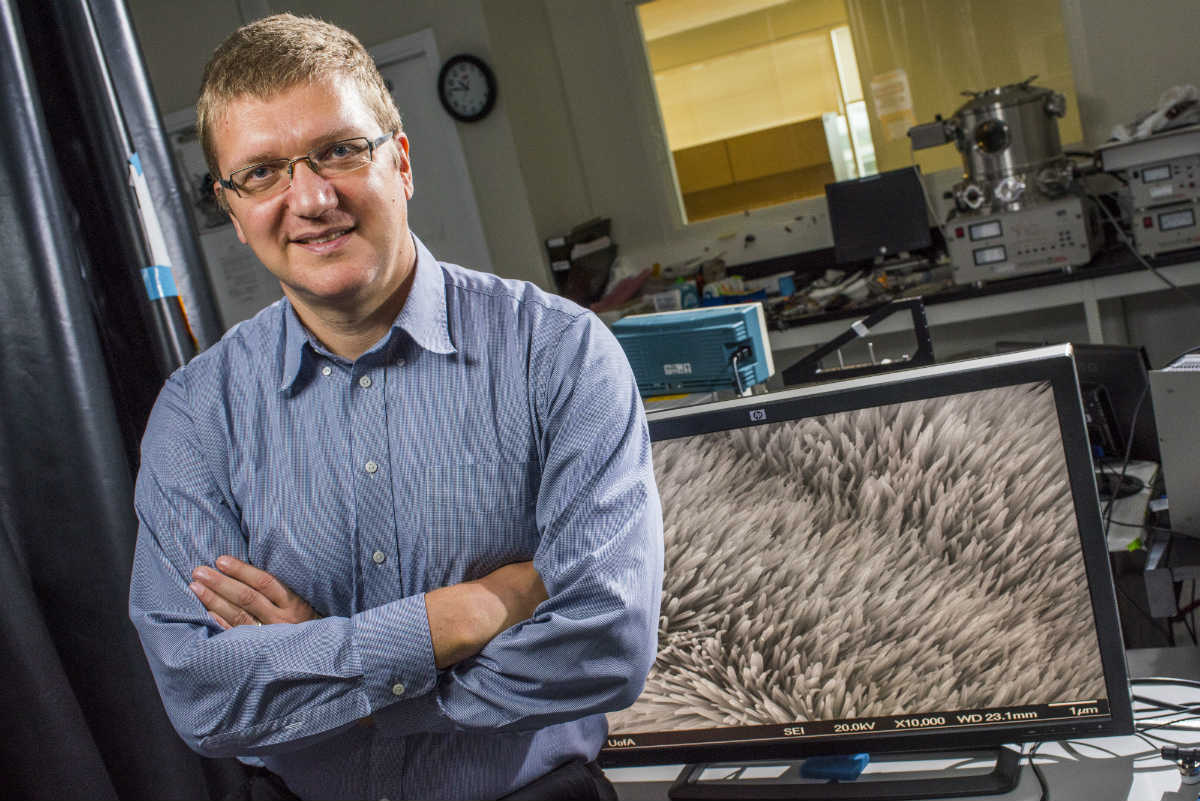
Meet Vakhtang Putkaradze, April 2019 Instructor of the Month. Photo credit: John Ulan
What do you teach?
I mostly teach undergraduate and graduate courses in applied math, but I also teach higher level undergrad courses for engineers-so mostly higher level undergrad and graduate courses.
Why should people learn about this?
Math is the foundation of all knowledge. It is the language we use in quantitative subjects. So it's very important that people master that language and are fluent with it because it allows us to describe things quantitatively, not just in words. Computers are a great help in that regard, but you can do a lot of things wrong with computers-they give you the answer to precisely what you've asked for. They can only provide you the right results if you ask the right question, and if you use them without any knowledge of the limitations of the methods provided, then that's always dangerous-you can easily get wrong results and you won't even know it.
What's the coolest thing about this subject area?
To me, it's how you can describe all kinds of things with math. We have a little project on figure skating-on the theory behind figure skating-and I think it's wonderful because it tells you how this sport can be described in terms of rather abstract mathematics. That's been great fun.
What was it that drew you to this field?
I like mechanics because I like how it's a very old area, and sometimes I talk to my colleagues in my field and they ask "oh, why do you do mechanics, everything is so old?" The important and fascinating thing for me is that all these ideas-from geometry and abstract math-come into mechanics to enrich it with some abstract notions that are very useful. From that point of view, it's a fascinating subject.
You were involved in the rolling robotic ball project-Moball. How do you think this project will change future industry and push society forward?
I've seen them being built for different purposes. In the field for example, as surveillance, data gathering, or for security. They're small and inexpensive. If you have a flat surface they are much more maneuverable than anything like a cart. A cart is pretty good, but it can't just turn 180 degrees and go back and if someone physically knocks the cart over. It's not going to work. But with rolling balls it's just not an issue; you can kick it and as long as the electronics inside and mechanics survive, its fine.
Interestingly enough, nature has no organisms like rolling balls apart from some really simple ones like tumbleweeds. So, this is also interesting that we can sort of go around evolution and can make complex structures like rolling balls. Then of course, if you have a lot of rolling balls, you can achieve much higher-level answers in terms of field research and pose different questions than you can if you have just one.
As director of the Pacific Institute for Math and Science (PIMS) what is the goal for the organization regarding students?
One of the things we are working on is going after home-grown talent. Last year we got a grant from the federal government for computational thinking in schools under the new CanCode program, and I think this will be a big part of building up the base of our local talent so that they're more prepared to come to schools and to universities. We would love for them to choose local universities and produce high quality employees for the future. The fact that our students are capable of being competitive with pretty much anybody in the world is really exciting.What is one thing that people would be surprised to know about you?
I always wanted to go to space and even did my undergrad in rocket science. However, it did not happen for various reasons, but I hope some of my students will go to space!